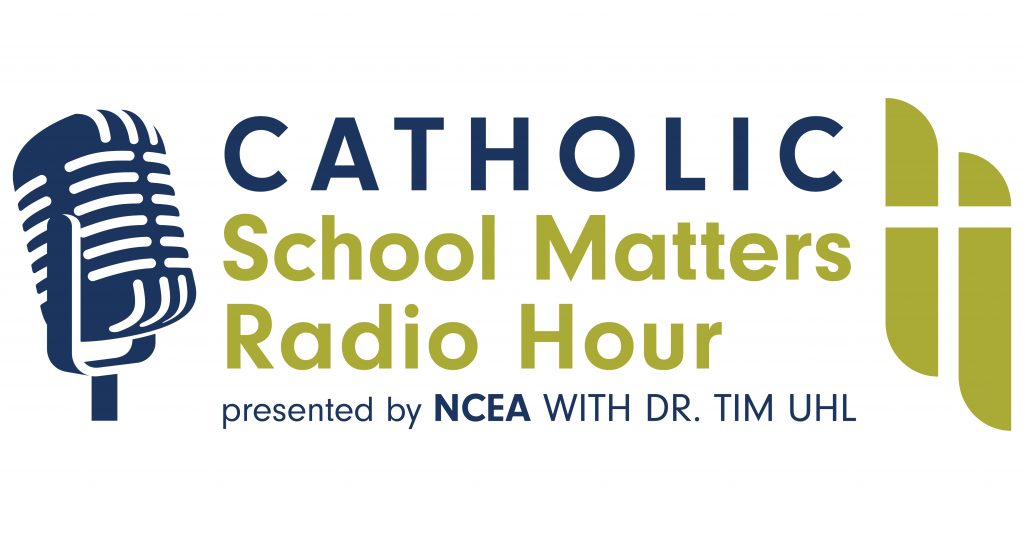
How do we do school when we aren’t at school? And how do we do Church when we aren’t at church? As we’re all trying to navigate this new world, it helps to take a step back and remember that we are trying to connect with people in new ways. It seems that every waking hour in the past week has been taken up by Coronavirus responses, Coronavirus reading or research, or dealing with the mostly exceptional Uhl children running around our house. Here’s how I’ve approached this crisis:
Pay attention to relationships. On my end, I’ve instituted a daily virtual meeting at 9 AM with principals. They can log in and get the latest reports and ask anything. We’re trying to solve problems together. I send them a daily Coronamemo with links and information. I encourage them to do the same with their staffs, and I encourage every teacher to video conference with their students. As so many of us are socially isolated at home, we need to provide connections to classmates and teachers. A one-on-one between every student and teacher should be mandatory. Office hours, links to the counselor, daily emails to parents, all feed our need for connection.
Another important note about relationships. We start here to keep our focus on the needs of our students and our communities. This should be our primary concern and should be the first note of all of our communications. Yes, our school’s futures are at risk. But that should be a secondary concern.
Build routines. Part of the reason for a 9 AM daily meeting is to help me establish a routine. Our students need routines. After a week, those routines will work to alleviate some of the anxiety. You should build in a morning assembly, daily prayer, weekly Mass, a daily email to parents, virtual town halls once a week, daily video checkins with faculty, etc.
Build your model of remote learning. Every school is a little different with different capacities, technology infrastructure, and expectations. Each school needs to find that sweet spot somewhere between handing out a worksheet packet and following the class schedule. How can you bring real, rigorous, relevant learning remotely? No one has it down yet. But you need to put rigorous learning as your goal, try something, and build on that.
Be an Educational Leader. Most of our parents don’t know how to manage their children all day. They need ideas for structure, model daily schedules, suggestions for screen use, and recommendations for books and entertainment. How do you lead a school when no one is there?
Communicate what you’re doing. This goes back to relationships and routines. Your parents and stakeholders need to know what you’re doing, what’s working, and where/how you’re concerned.
Don’t lose sight of the operational and HR needs. Federal employment law abruptly changed last week and will impact sick leave and emergency leave. Unemployment benefits have changed, too. You need to understand these to lessen the anxiety of your staff.
Share your plan for the future. What’s your cash flow look like for the rest of the year? With the loss of fundraising revenue and possible loss of some tuition, what will that do to your budget? If you don’t come back to school until August, what will this mean? You need to communicate with your parents. If you’ve done this all, then it won’t be hard to ask for support. If the first thing you do is send an invoice for tuition or ask for more money, you’re not likely to garner much response.
With a one-two punch of the Coronavirus and a looming recession, many fragile Catholic schools are facing an existential crisis. We need to take care to respond appropriately to inspire confidence and prove our worth.
Top 5
My past week was dominated by Coronavirus concerns so I’m going to share the resources and articles I found valuable. The Top 5:
- In the first section, Fr. Joe Corpora from Notre Dame has written a poignant piece on navigating this crisis: “Being Mercy, Salvation, and the Laundry Left Undone” is simply wonderful.
- Later in that section, to remind yourself why we’re doing this, make sure to read the Imperial College report which changed everything, or the “Extraordinary decisions” article about Italian hospitals.
- In the Operational Resources section, Dr. Julie Cantillon and the Diocese of San Diego Catholic schools team has put together a super website with resources for remote learning. Check it out and sign up for her daily updates.
- In the Religion Resource section, I’ve come across a number of great resources for religious content (Formed, Word on Fire, Sadlier) but the best is the Diocese of Grand Rapids. It’s what church looks like during this difficult time.
- In the last section on Crisis & Communication, the HBR article “Build Your Resilience in the Face of a Crisis” is a great reflection. Call this what it is (a crisis) and look to learn to improve your skills navigating.
Be safe and be courageous. We need great leaders now more than ever.
Podcast
This week’s Catholic School Matters podcast episode presents three Catholic school practitioners who are completing their graduate degrees with dissertation topics in the field of Catholic education. Lauren Roberts from Dallas, Dr. Jim King from Maine, and Abbie Greer from Washington, DC all present their story of graduate school, research, and share interesting implications from their research.